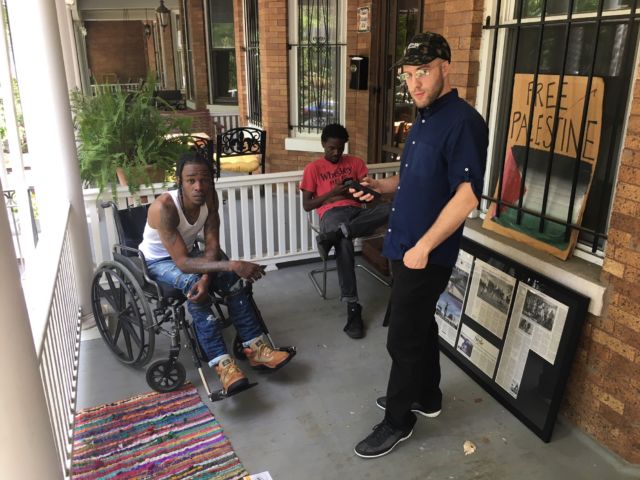Pacman and Peso are rappers from Washington D.C., but their path to notoriety took them 7,000 kilometers away to DPRK‘s capital Pyongyang. Once back in Washington, tragedy struck.
CGTN’s Jim Spellman spoke to the rap artists about their experience both in Washington and Pyongyang.
In 2014 they shot a video for their song “Escape to North Korea” on the streets of Pyongyang. Their manager Ramsey Aburdene had a wild idea to shoot a video in the DPRK and was surprised when authorities in Pyongyang agreed.
“They were all very friendly, very nice. They knew we were coming to do a video but they didn’t know what,” said Aburbene.
The song “Escape to North Korea” includes the lyric “I stand tall in North Korea, salute to Kim Jong Un” leading some to interpret the song as supporting the DPRK government. However, the rap duo has said it’s about engaging with different, misunderstood cultures.
“It was basically [about] escaping media, and just being in a box listening to what’s given to you and not going to go see for yourself,” said Pacman.
“Everyone thought we were going for some type of political thing. They even thought the song was political, but I put my own little swag on it to say that there is no difference between North Korea and where I stay at,” added Peso.
Pacman and Peso live in a neighborhood called Anacostia in the Southeast quadrant of Washington D.C. The neighborhood struggles with crime and poverty.
Their friends and family were worried for their safety, but in “Escape to North Korea” Peso raps that it could be safer in the DPRK than in his own rough neighborhood.
“They say it’s dangerous, well my streets be a hellzone,” Peso raps in the song.
Unfortunately, Peso was right. In 2016, two years after they made their video, Peso was shot four times back home in Washington. He doesn’t talk much about the details of the shooting. He now relies on a wheelchair and the support of his friends.

“I ain’t gonna lie. I lost myself for a minute. It was about eight months…I even stopped listening to music for a couple months. I stopped doing things I would do for a couple months,” Peso said while sitting in his wheelchair on a sunny spring afternoon. He was waiting for his production team to arrive for a recording session back in his old neighborhood of Anacostia.
He’s just now returning to his passion – making music reflecting his new experiences. His eyes filled with tears as he recorded a new song in a basement studio.

“What if the performance you’re at was a movie? But cameras don’t shoot bullets in the movies. Don’t live my life like you live in a movie. Don’t know what’s real or what’s fake in a movie. It’s gonna be over, gonna end like a movie,” he rhymes over a looping beat.
Pacman and Peso still think about their journey to the DPRK and the attention it brought them. Despite Peso’s hardships, he said his unlikely trip to Pyongyang still inspires him.
“I was basically living the dream I always wanted to live. It changed my life big time because I was doing something different than being on the streets doing something totally wrong. It got my mind set on doing something bigger than this. Living my life on the streets,” recalled Peso.
Pacman and Peso hope more people will discover their music and experience it firsthand, just as they hope more Americans can travel to the DPRK and see the country firsthand like they have.
 CGTN America
CGTN America

